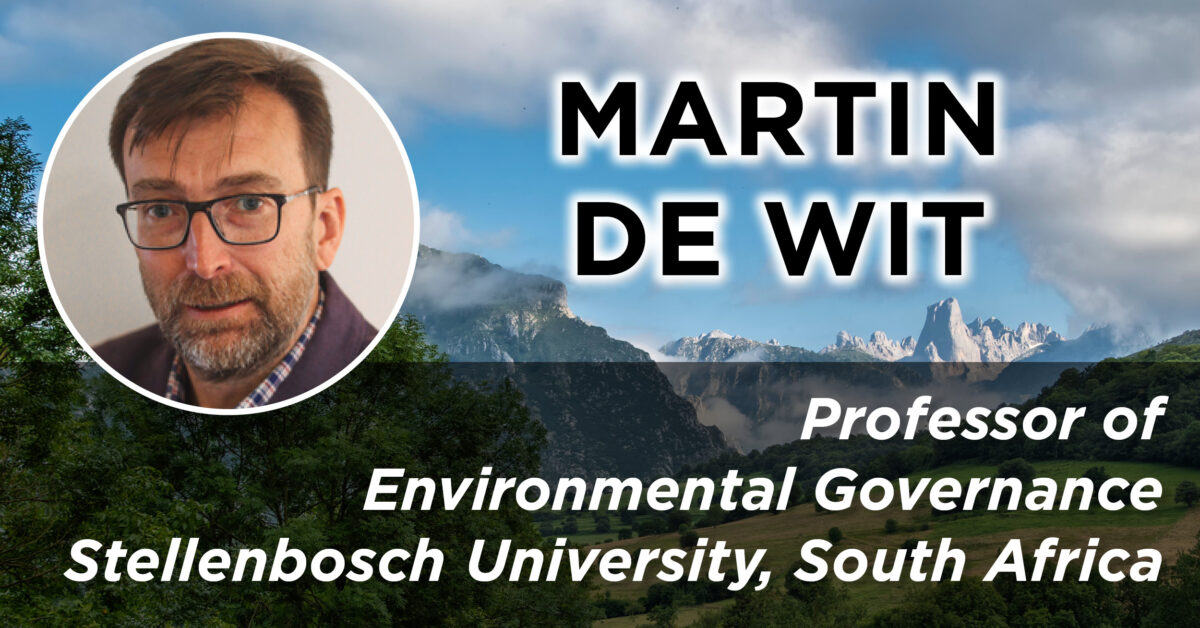FREE PUBLIC EVENT: TWU’s Faculty of Natural and Applied Sciences and CSCA’s Vancouver chapter present a lecture by Martin de Wit (Scholar-in-Residence, Regent College).
Sustainability and Biblical Creation Care
Sustainability in most of its forms and definitions is an elaborate commentary on material trends in economy and nature, and human responses to it. Sustainability dominates discussions in several fields of the natural and social sciences. Why should Christians participate in questions on sustainability as Christians within our communities? Two guidelines steer the response, namely (i) care for God’s creation must arise from the core of the Christian faith and (ii) Christians cannot act as if there is any part of creation or human action that falls outside the scope of the gospel as revealed in Scripture. Yet, arguments from ‘experience’ or from ‘life’ all too often serve as the basis for our most important decisions – also those related to dealing with creation – without really considering what Scripture teaches us. The purpose of this talk is to share results of a book project on the exegesis of selected biblical texts that provides insights into mankind’s relation to God’s creation. No evidence is found in Scripture that supports the claim that Christian piety counteracts the care for creation, but it is argued that a correction may be necessary on certain views of God and His creation, mankind’s place in it and how expectations about the future affects living on this earth. No evidence, however, is found for the claim that the biblical text is essentially obsessed with human well-being at the expense of other creatures.
With responses from David Clements and Janel Curry.
Martin de Wit is Scholar-in-Residence at Regent College for the 2024 Fall term. He is Professor of Environmental Governance at Stellenbosch University, South Africa, and coordinates the School of Public Leadership’s Post Graduate Diploma and Master Programmes in Environmental Management. His research work focuses on care for creation, the interactions between the economy and the environment (notably climate, ecosystems, energy, and waste), and the place of the human person in environmental governance and social order. His latest book is written in vernacular Afrikaans and called Skeppingsorg: ‘n Aanset tot interpretasie van sekere Bybeltekste oor die mens se verhouding tot die natuurlike omgewing [Creation Care: An onset to interpreting certain Bible texts about human’s relationship to the natural environment] (Durbanville: AOSIS, forthcoming). He serves on the Board of Directors of A Rocha South Africa. He is married to Rianne, and they have three children.
David Clements completed his BSc in Ecology and Evolution at Western University, PhD at Queen’s University on integrated pest management and postdoc at University of Guelph on integrated weed management. Clements teaches botany and ecology, including field courses on Salt Spring Island and Hawai’i. His research on invasive riparian plants, Garry oak ecosystems and climate change has yielded more than 80 scientific publications. He manages TWU’s field research sites: the Ecosystem Study Area, the Blaauw Eco Forest and the Crow’s Nest Ecological Research Area on Salt Spring Island. He frequently visits Yunnan Province in China studying the global invasive plant, mile-a-minute. He did a sabbatical at Charles Sturt University in Australia in 2018. A founding board member of the Christian environmental organization, A Rocha Canada, Clements still serves on the science advisory committee. He is actively involved in the Canadian Weed Science Society (President in 2013-2014), the Weed Science Society of America and many other scientific societies and served as an associate editor for the Canadian Journal of Plant Science, Weed Research, Pacific Science, Agronomy, and Invasive Plant Science and Management. He edits a series on invasive species for Pacific Science and is co-editor for a series in Invasive Plant Science and Management on the biology of invasive plants. He edited two books “Global Plant Invasions” (Springer) and “Persistence Strategies of Weeds” (Wiley) published in 2022. He is actively involved in local stewardship groups and writes the Green Beat column for the Langley Advance Times newspaper.
Janel Curry, President of the American Scientific Affiliation (ASA), obtained her PhD in geography from the University of Minnesota. She taught at Central College in Pella, Iowa and at Calvin University in Grand Rapids, Michigan, in the areas of geography and environmental studies. Her areas of research have included environmental policy, religious worldviews and the environment, and women in leadership. This research has led to over 40 peer-reviewed publications. In addition, she has held three Fulbright Fellowships to the University of Guelph, Ontario; City University of Hong Kong; and most recently, Forman Christian College in Lahore, Pakistan. Besides her scholarly interests, Janel has held several administrative roles, including being dean for research and scholarship at Calvin College and provost at Gordon College. She has two married daughters, both of whom point out that they all watched Nova together on Tuesday nights when they were growing up.
Cosponsors


